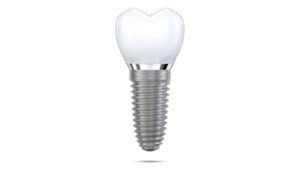
For around 95% of patients, dental implants provide successful and predictable tooth replacement. However, there are some circumstances that, unfortunately, can cause these prosthetic tooth roots to fail, making it necessary to remove them. If one of your implants is no longer functioning properly, and your dentist determines that extracting it is the wisest course of action, what can you expect from the procedure? Below, you will find a brief guide to what is involved in removing a failed implant in Westborough:
Each Case Is Unique
Just like each patient is unique, so is every implant removal surgery. There are multiple factors that can influence the complexity and difficulty of the procedure, including:
- The length of time that the implants have been in place. If you have had your implants for many years, removing them will likely be more complicated than removing them from the mouth of an individual who recently received them.
- The location of the implants in the mouth. Removing an implant from the upper jaw is typically easier than taking one from the lower jaw.
- Nearby structures. Implants that are near a nerve or another important structure tend to be somewhat challenging to remove.
- The size and shape of the implants. Long, narrow implants are often more difficult to extract than their shorter, wider counterparts.
The Removal Procedure
Prior to your surgery, your dental team will use special imaging equipment to examine the implant and get to know the layout of the surrounding tissues. After they create a surgical strategy, they will extract the implant, taking care to cause as little damage as possible to the nearby oral structures.
Depending on the specifics of your circumstances, there is a chance that you will be able to receive a new implant right away, possibly along with a bone graft to fortify your jawbone. In the majority of cases, though, a healing period of at least a few months is necessary before a new implant can be placed.
You can expect to feel little to nothing throughout the surgery, thanks to local anesthesia and, possibly, sedation.
After the Surgery
You will be provided with detailed post-op instructions to help you enjoy a comfortable, complication-free recovery. For example, you may be advised to avoid eating certain foods, adjust your oral hygiene habits, and abstain from the use of any tobacco products. You may experience some bleeding, soreness, and swelling for a few days, but such symptoms should subside within a few days to a few weeks.
You should do your best to attend all recommended follow-up appointments as scheduled. Your dentist will thus be able to monitor your recovery, and if all goes well, eventually help you to once again enjoy all the benefits of dental implants.
A failed dental implant can be a serious problem. Fortunately, your dental team is ready to address the issue and do all they can to get your oral health back on track.
Meet the Practice
The team of expert dentists at All Dental in Westborough provide a range of procedures, including dental implant placement and restoration. We are also well-equipped to assist patients who are dealing with a potential failed dental implant. To learn more about how we may be able to serve you, contact us at 508-870-1911.
